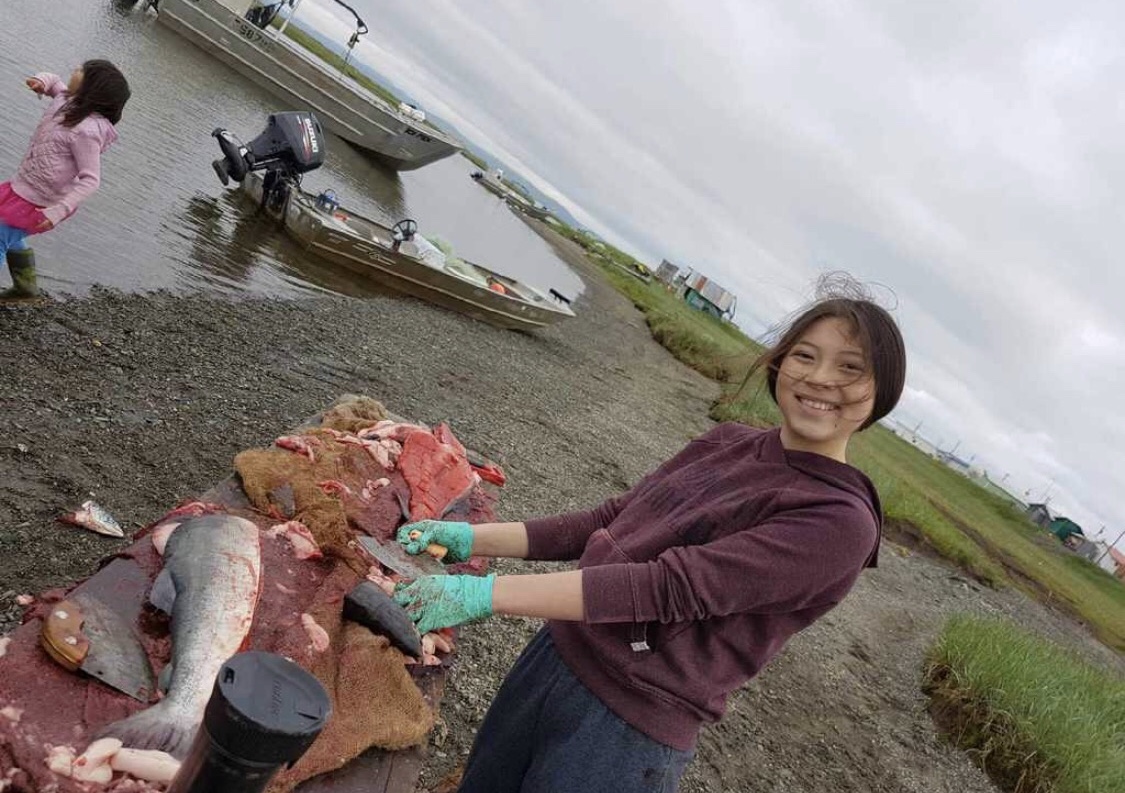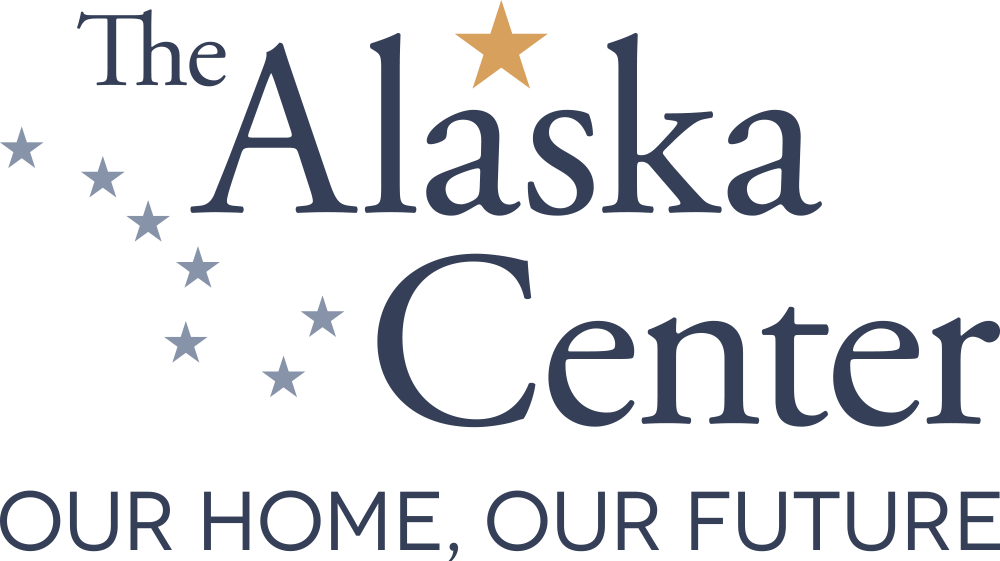
Salmon are important to me because they give. They give without needing anything but a safe habitat to grow and prosper in. Fish provide us food all year round; with salmon fillets, dried fish and every delicious preparing period in between.
Additionally, salmon give and teach us to give in return. While our hearts are filled with the joy of the catch, we too get the satisfaction of warmth and nourishment in our bellies. In rural Alaska, we busy ourselves by checking nets, and rod and reel fishing alike. Successful trip or not, we share our salmon with our family, friends and people in need.
Salmon also help us share the unique traditions that are a part of the greater Alaskan culture. We have a tradition of setting and checking our set nets every summer, preparing the food soon after so it is as fresh as can be. This tradition portrays how each community puts fish away during these warmer summer months together with family, friends, or sometimes both.
Relationships grow stronger through the harvesting of salmon. Salmon fishing ultimately brings people together by having them working together as a team. Laughter can be shared as we enjoy a healthy meal together, and when we store the rest for those long winter months. I know this because I have experienced it. Once at the end of one of our busy harvest days, we all felt as if our bonds grew stronger. I had followed my family to set and check the net. We had counted fish as they were thrown in a tote that we used to gather what was caught that day. We would get as much as 10 fish or even 150 fish, depending on the spot set or whether salmon bred enough. I grew up with this feeling when I began watching my family catch and cut fish annually.
My family loves salmon. They also believe they are important. So of course, my family wants what’s best for salmon: to keep them safe. Not only are salmon our food, they are a part of our lives as people.
When I was younger, I’d help my mom rinse off fish fillets while she’d cut more. One summer, she took the time and patience to teach me how to cut the fish. I’m still trying to perfect my fillets, but I’m really happy I know how to cut fish. My younger cousins learned how to cut dry fish in a day! They enjoyed their time learning. When one of them mastered it, she would help one of the others who needed guidance. They enjoyed their time and told stories while doing so. Someday, I’ll be as good as my grandpa, and someday I’ll also put salmon away with my own family. I hope I get to teach my own grandchildren our Inupiaq values and culture. I’ll also see others bond over salmon.
Salmon can teach us about our culture and our Indigenous lifestyle. I remember the first time I cut a humpy salmon for dried fish. It was one of the most grateful moments in my life. While I filleted the fish, I thought of how amazing our life with salmon is. Our subsistence lifestyle is truly unique and special. Everything we do relating to our culture makes us stronger and smarter.
When I caught my first salmon ever, a humpy, my face lit up and adrenaline took over me. I shouted with laughter and almost panic, but I knew what to do and I quickly reeled in my catch. I took the fish off the hook and put it in a tote, and cast my rod again. It was a great day that I’ll never forget. Every time I go fishing and get a bite, I still get the same feeling. The feeling of joy, excitement, and of course, thankfulness.
One of the reasons I choose to stand for salmon is the thought of losing them, especially since I live in a village where my family and community eat salmon so heavily in our diet. In the village I’m from, Shishmaref, and every other place in Alaska, salmon are so important.
Salmon are one of God’s made resources for us and the animals that also survive off of them. If we lost them, we’d also lose a part of us. We would lose a big piece of our culture, ethnicity, nature factors and Native pride. In the summer, what would my family and I do? We would no longer have a freezer as full. We would have to start depending on store-bought fish. Larger animals that eat salmon would have to adjust their diet or also become extinct.
This is why salmon is important and why I ask Alaskans to vote yes on ballot measure 1, which will be appear on Alaska’s Nov. 6 general election ballot.
Gabby Nayokpuk is a 15-year-old student and subsistence fisher from Shishmaref. Gabby was chosen to be one of four Alaska Youth for Environmental Action 2018 Youth Salmon Fellows to work on the issue of protecting salmon habitat.
Orignal post in The Arctic Sounder.com>>
Share this Post
